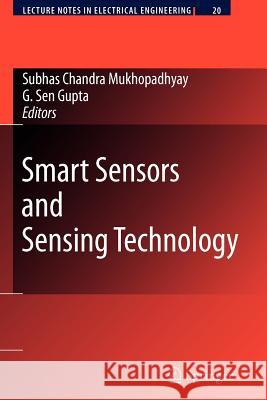Smart Sensors and Sensing Technology » książka
Smart Sensors and Sensing Technology
ISBN-13: 9783642098529 / Angielski / Miękka / 2010 / 411 str.
Technological advancements in recent years have enabled the development of tiny, cheap disposable and self contained battery powered computers, known as sensor nodes or "motes," which can accept input from an attached sensor, process this input and transmit the results wirelessly to some interested device(s). When a number of these nodes work together, conceivably up to hundreds of thousands, a Wireless Sensor Network (WSN) is formed. Research in the area of wireless sensor networks has become increasingly wid- pread in recent years, partly due to their wide range of potential uses and also partly due to the fact that the technology enabling such networks is now widely available from many di?erent suppliers, such as: Crossbow, MoteIV, Intel and SUN (java based motes). These wireless sensor networks have the potential to allow a level of integration between computers and the physical world that, to date, has been virtually impos- ble. The uses for such networks is almost limitless and include such diverse app- cations as a counter sniper system for urban warfare 1] tracking the path of a forest re 2], determining the structural stability of a building after an earthquake 3], or tracking people or objects inside a building 4], etc.











